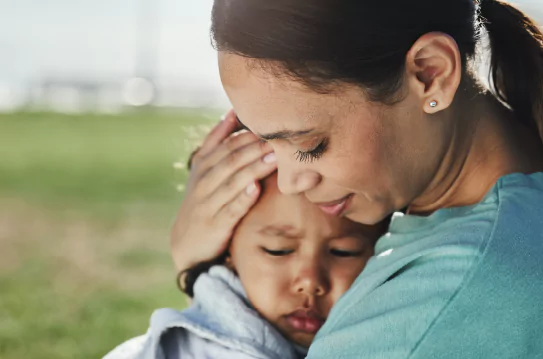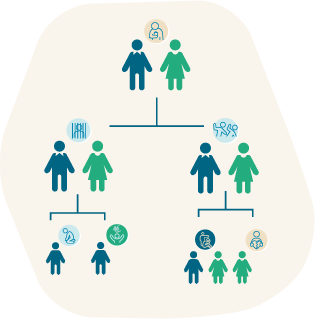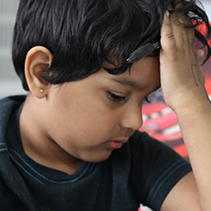ACEs and Intergenerational Trauma
ACEs AND
Intergenerational Trauma

Intergenerational trauma occurs when the impacts of past traumatic events or adversities are passed from one generation to the next.
Biomedical researchers have studied how toxic stress alters gene function through epigenetics, affecting our bodies and brains long-term. These epigenetic changes can be transmitted across generations, even without direct exposure to the original stressor or adverse experience.
Research on trauma highlights how negative behaviors learned in toxic environments can persist down family lines, creating challenges for future generations.

Children who endure abuse, neglect, and household turmoil often lack secure attachments with caregivers, leaving them vulnerable to repeating harmful patterns learned in their upbringing.

Building supportive relationships is crucial to breaking this cycle.
Intergenerational trauma is not just about learned behaviors; it deeply impacts brain development, shaping how children perceive and respond to challenges.

They may learn to normalize adversity or feel powerless to change their circumstances, like being lost in a maze. After trying and failing many times to find a way out, they start to believe that escape is impossible, even when there might be openings that have not been explored yet

Overcoming this learned helplessness is difficult because children become trapped in a cycle of despair
Raising awareness within families about intergenerational trauma is vital to breaking the cycle of ACEs.
Healthcare providers can play a key role by adapting a relationship-centred, trauma-informed approach. By addressing past trauma and supporting parents in improving their parenting skills, we can foster healthier family dynamics and break the cycle of ACEs.
Though challenging, close collaboration with families and communities is essential in overcoming the effects of intergenerational trauma.
